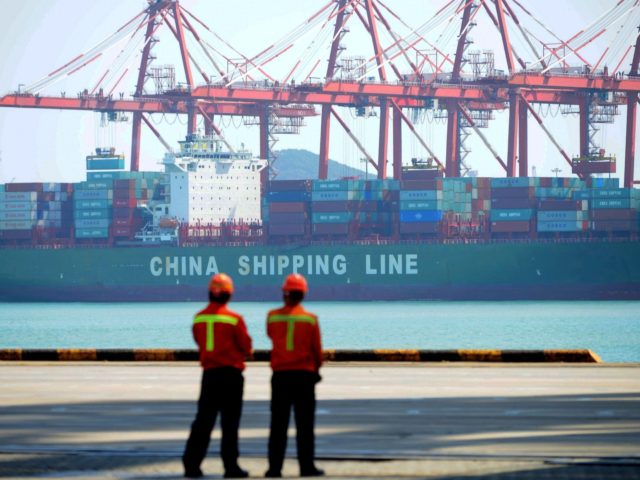The U.S. Department of Homeland Security (DHS) announced September 14 that it will block imports from five more Chinese companies and centers that use political prisoners from China’s Uyghur province.
“President Trump and this Department have, and always will, put American workers and businesses first and protect American citizens from participating in these egregious human rights violations,” said acting DHS Deputy Secretary Ken Cuccinelli. He continued:
DHS is combating illegal and inhumane forced labor, a type of modern slavery, used to make goods that the Chinese government then tries to import into the United States. When China attempts to import these goods into our supply chains, it also disadvantages American workers and businesses.
“The Trump Administration will not stand idly by and allow foreign companies to subject vulnerable workers to forced labor while harming American businesses that respect human rights and the rule of law,” said Mark Morgan, the acting commissioner of the Customs and Border Protection (CBP) agency.
“Allowing goods produced using forced labor into the U.S. supply chain undermines the integrity of our imports. American consumers deserve and demand better,” said Brenda Smith, Executive Assistant Commissioner of the trade office at the CBP.
An agency statement said:
In Fiscal Year 2020, CBP has issued an unprecedented 12 WROs [Withhold Release Orders] in a single fiscal year, including 8 WROs on products from China. All WROs are publicly available and listed by country on CBP’s Forced Labor Withhold Release Orders and Findings webpage.
The new curbs cover five centers and companies:
By subscribing, you agree to our terms of use & privacy policy. You will receive email marketing messages from Breitbart News Network to the email you provide. You may unsubscribe at any time.
1. All products made with labor from the Lop County No. 4 Vocational Skills Education and Training Center in Xinjiang Uyghur Autonomous Region, China. Information reasonably indicates that this “re-education” internment camp, which is often called a Vocational Skills Education and Training Center, is providing prison labor to nearby manufacturing entities in Xinjiang. CBP identified forced labor indicators including highly coercive/unfree recruitment, work and life under duress, and restriction of movement.
2. Hair products made in the Lop County Hair Product Industrial Park in Xinjiang Uyghur Autonomous Region, China. Information reasonably indicates this site is manufacturing products with forced labor of the Uyghur people and other minority ethnic groups who are detained in “re-education” internment camps in Xinjiang. CBP identified forced labor indicators including highly coercive/unfree recruitment, work and life under duress, and restriction of movement.
3. Apparel produced by Yili Zhuowan Garment Manufacturing Co., Ltd. and Baoding LYSZD Trade and Business Co., Ltd in Xinjiang Uyghur Autonomous Region, China. Information reasonably indicates that these entities use prison and forced labor in apparel production. CBP identified forced labor indicators including the restriction of movement, isolation, intimidation and threats, withholding of wages, and abusive working and living conditions.
4. Cotton produced and processed by Xinjiang Junggar Cotton and Linen Co., Ltd. in Xinjiang Uyghur Autonomous Region, China. Information reasonably indicates that this entity and its subsidiaries use prison labor in their raw cotton processing operations in Xinjiang. Cotton-processing factories and cotton farms in this region are prison enterprises that use convict labor.
5. Computer parts made by Hefei Bitland Information Technology Co., Ltd. in Anhui, China. Information reasonably indicates that Hefei Bitland uses both prison and forced labor to produce electronics. CBP identified forced labor indicators including abuse of vulnerability, restriction of movement, isolation, and intimidation and threats.

COMMENTS
Please let us know if you're having issues with commenting.